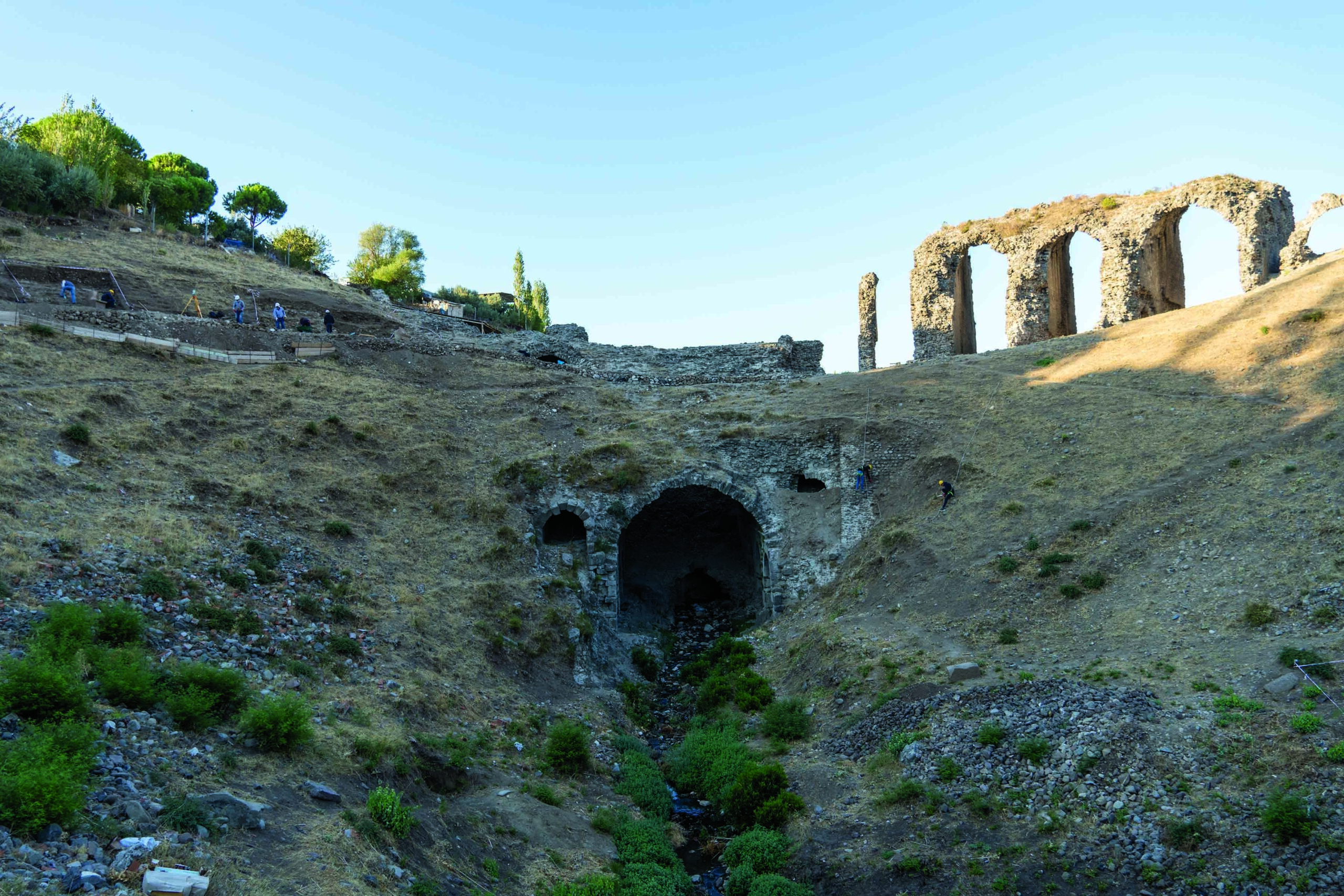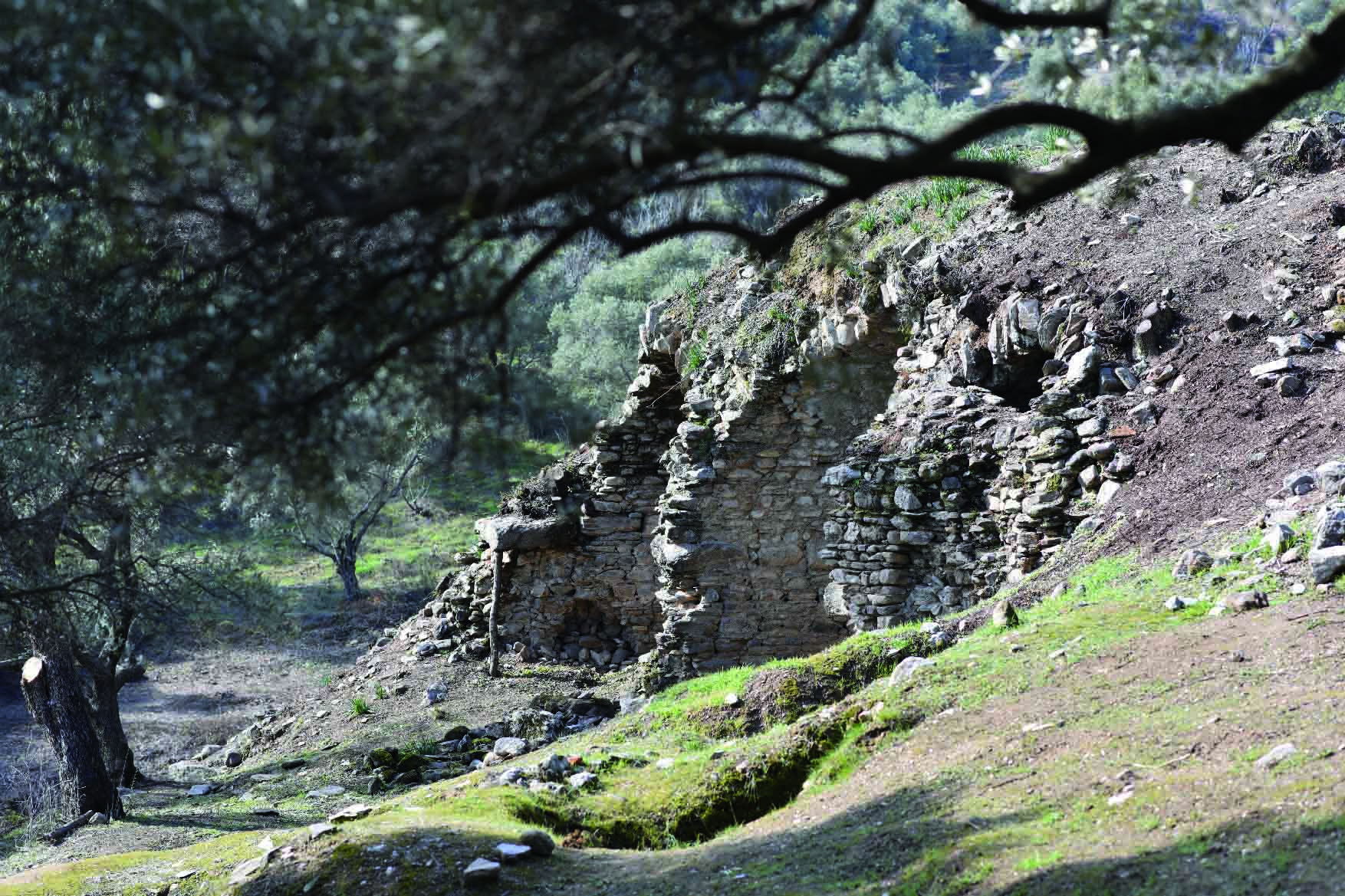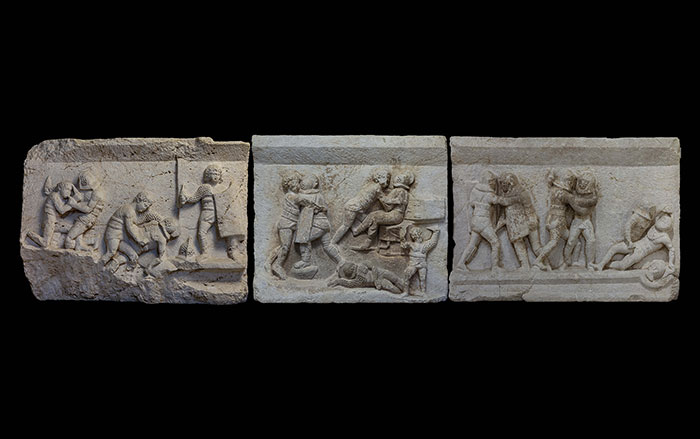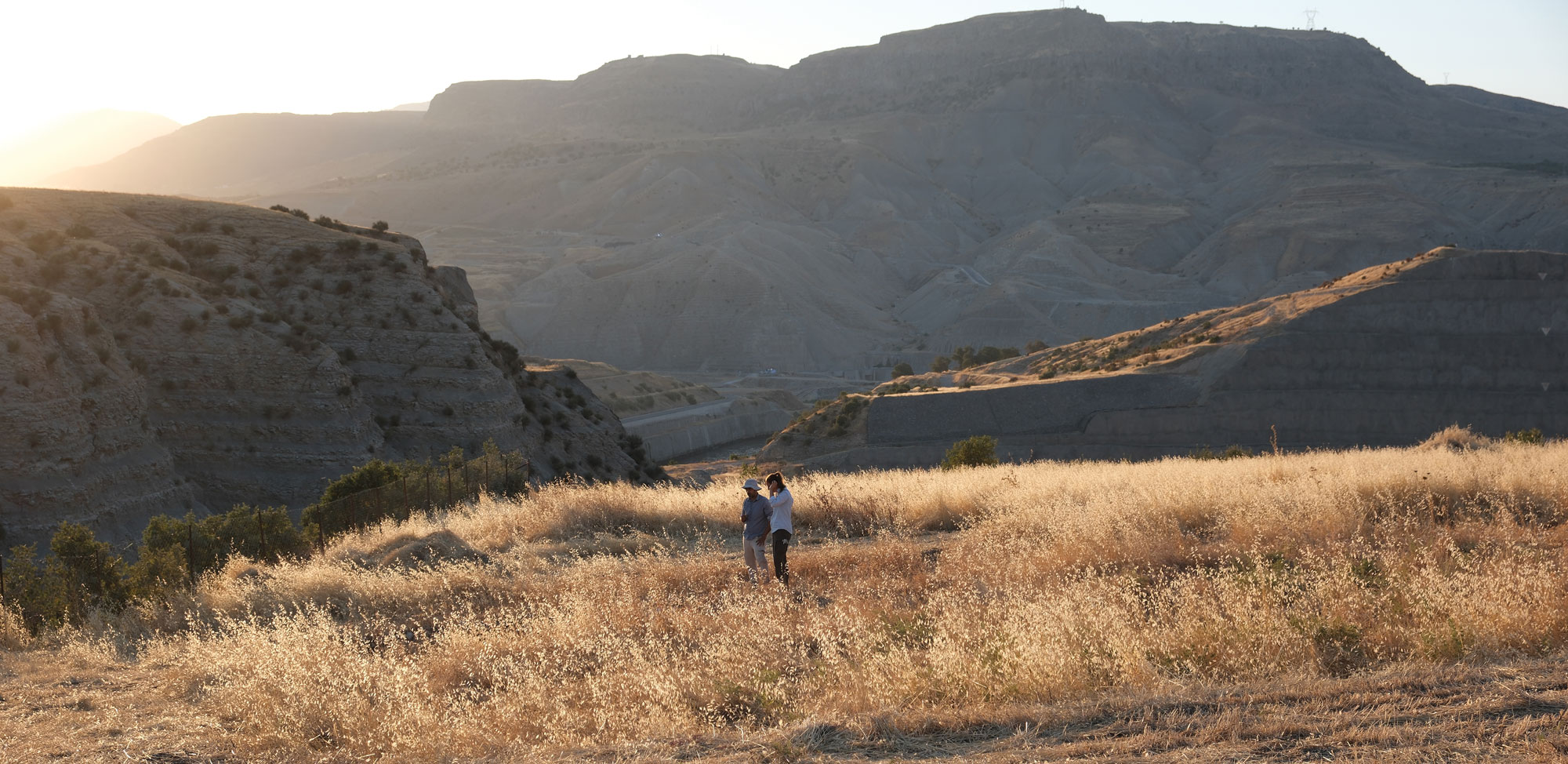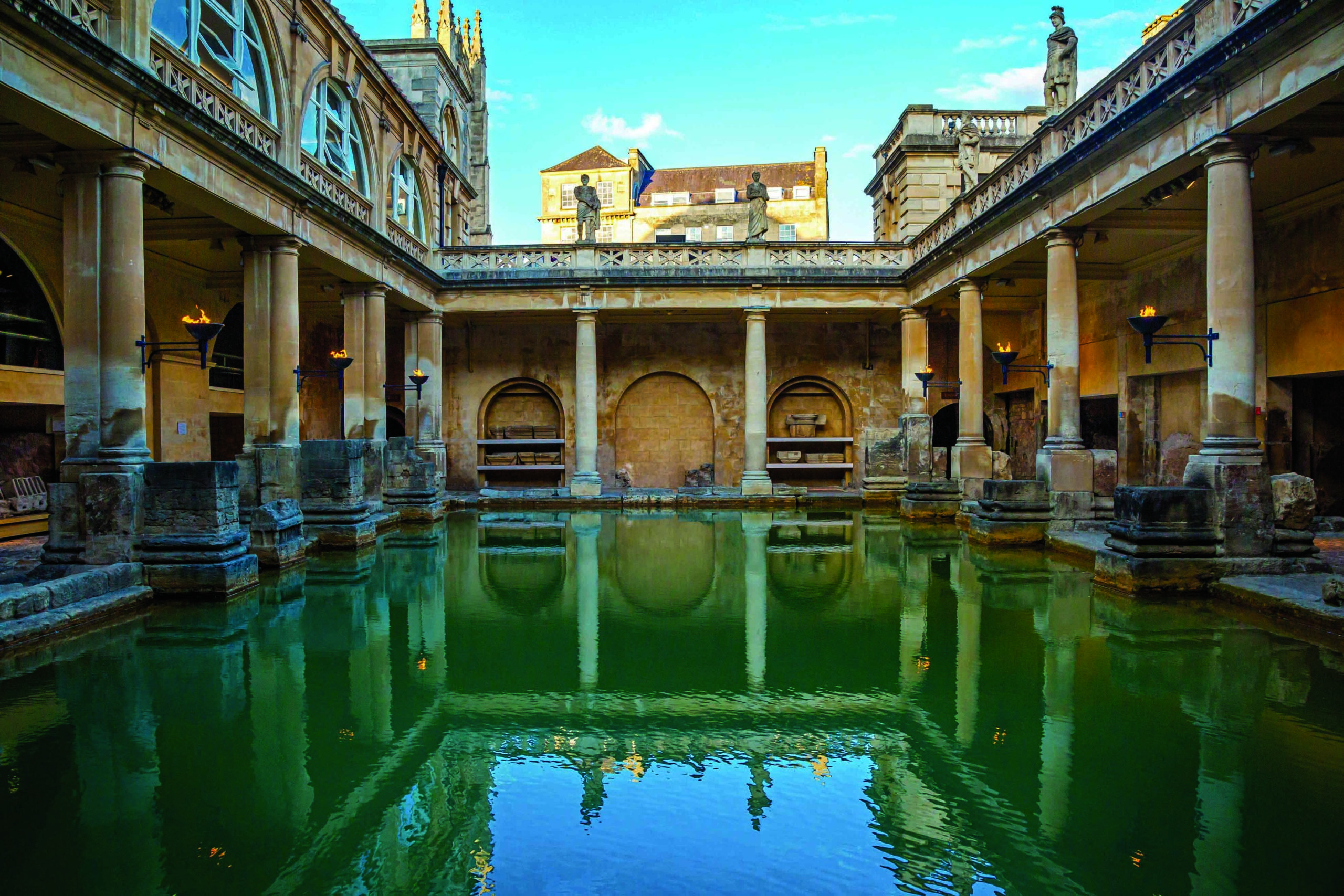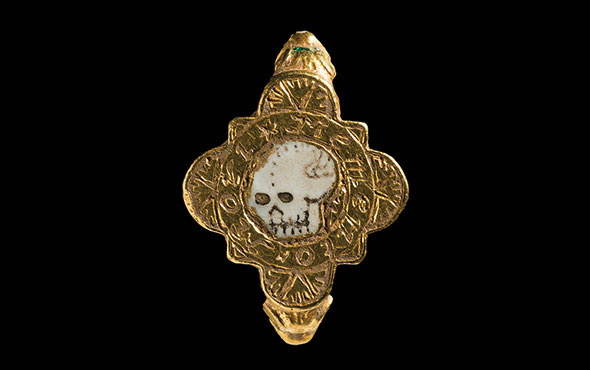
IZMIR, TURKEY—The Anadolu Agency reports that researchers from the German Archaeological Institute and Berlin Technical University found names engraved on seats in five areas of the 1,800-year-old amphitheater in western Turkey’s ancient city of Pergamon. As many as 50,000 people at a time may have been able to watch the gladiator battles, animal fights, executions, and re-enactments of naval battles known to have taken place in the amphitheater’s large arena. “They wanted to build a replica of the Colosseum here, which was frequented by all segments of society,” explained Felix Pirson of the German Archaeological Institute. “But people from the upper class or important families had private seats in special sections with their names engraved on them.” Some of the names, although Latin, were written in Greek letters, he added. “We believe that some people from Italy had a special place in the Pergamon amphitheater.” Such a large entertainment center is thought to have given Pergamon an edge over Ephesus and Smyrna, two other ancient cities in the region, Pirson said. To read about the discovery of a Roman amphitheater at the ancient city of Mastaura in western Turkey, go to "In the Anatolian Arena."


